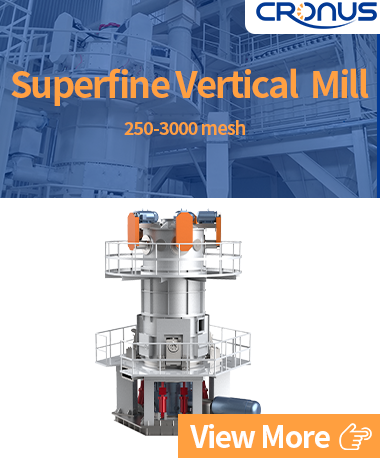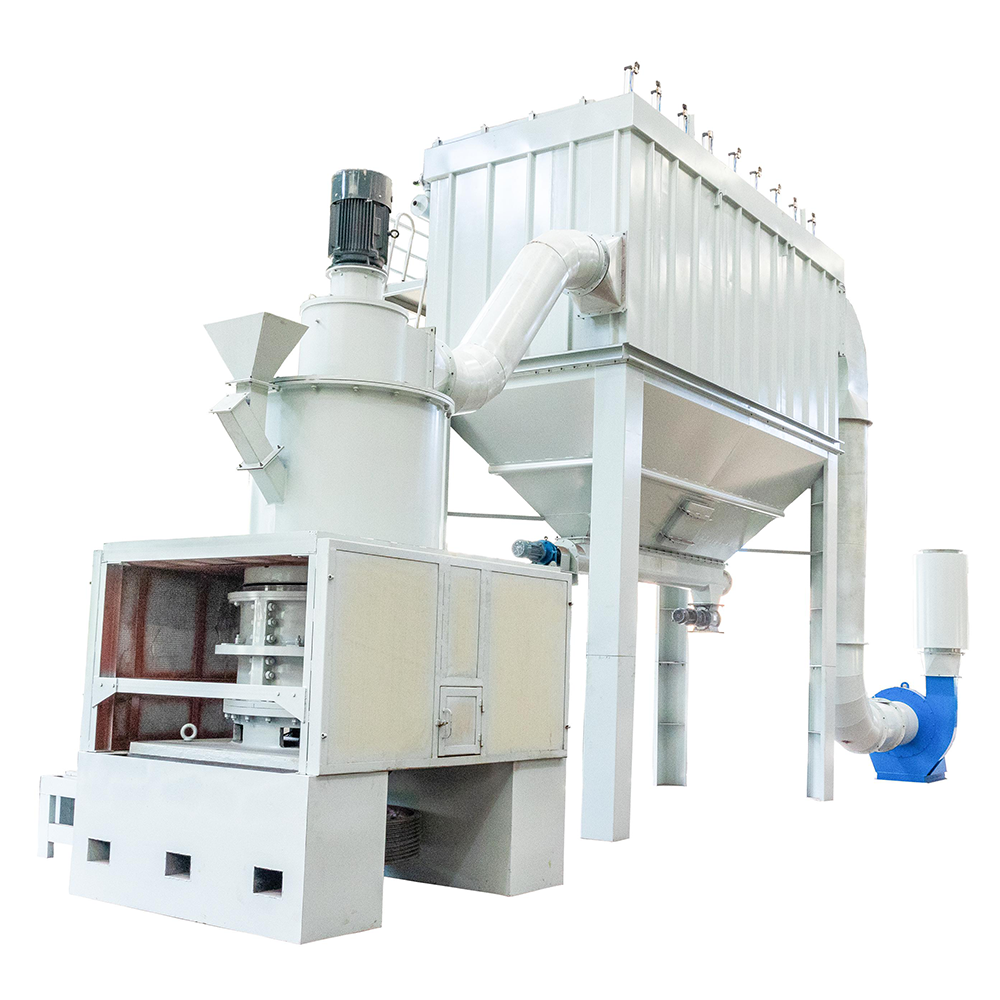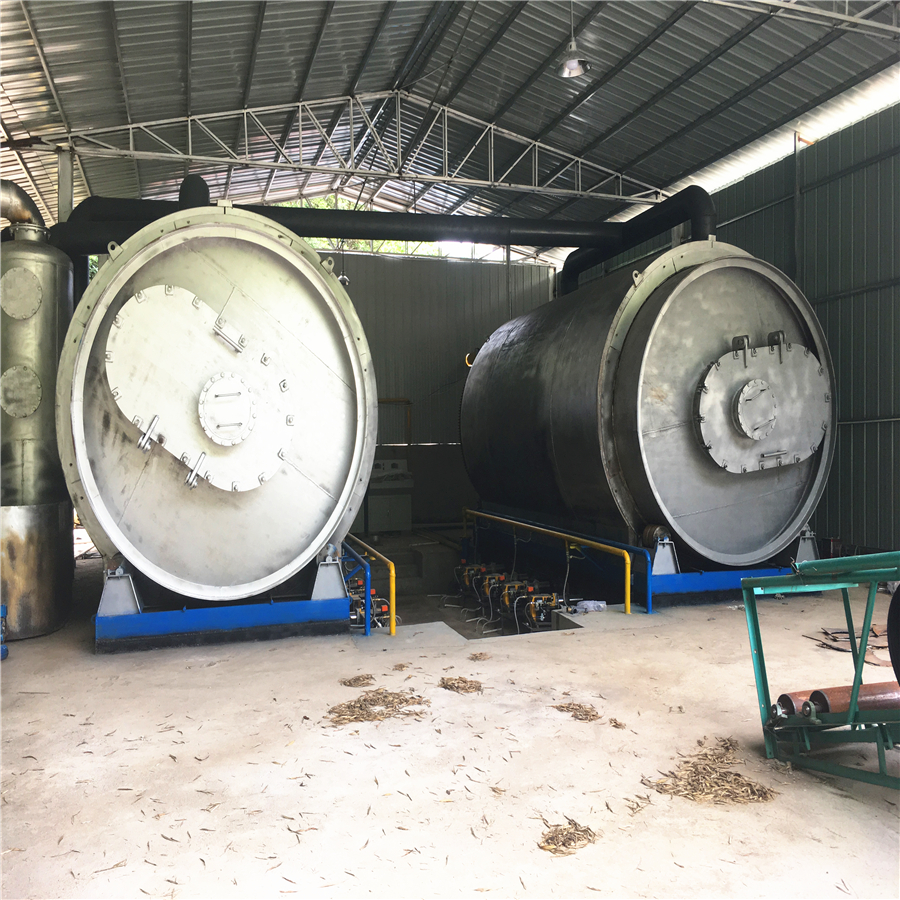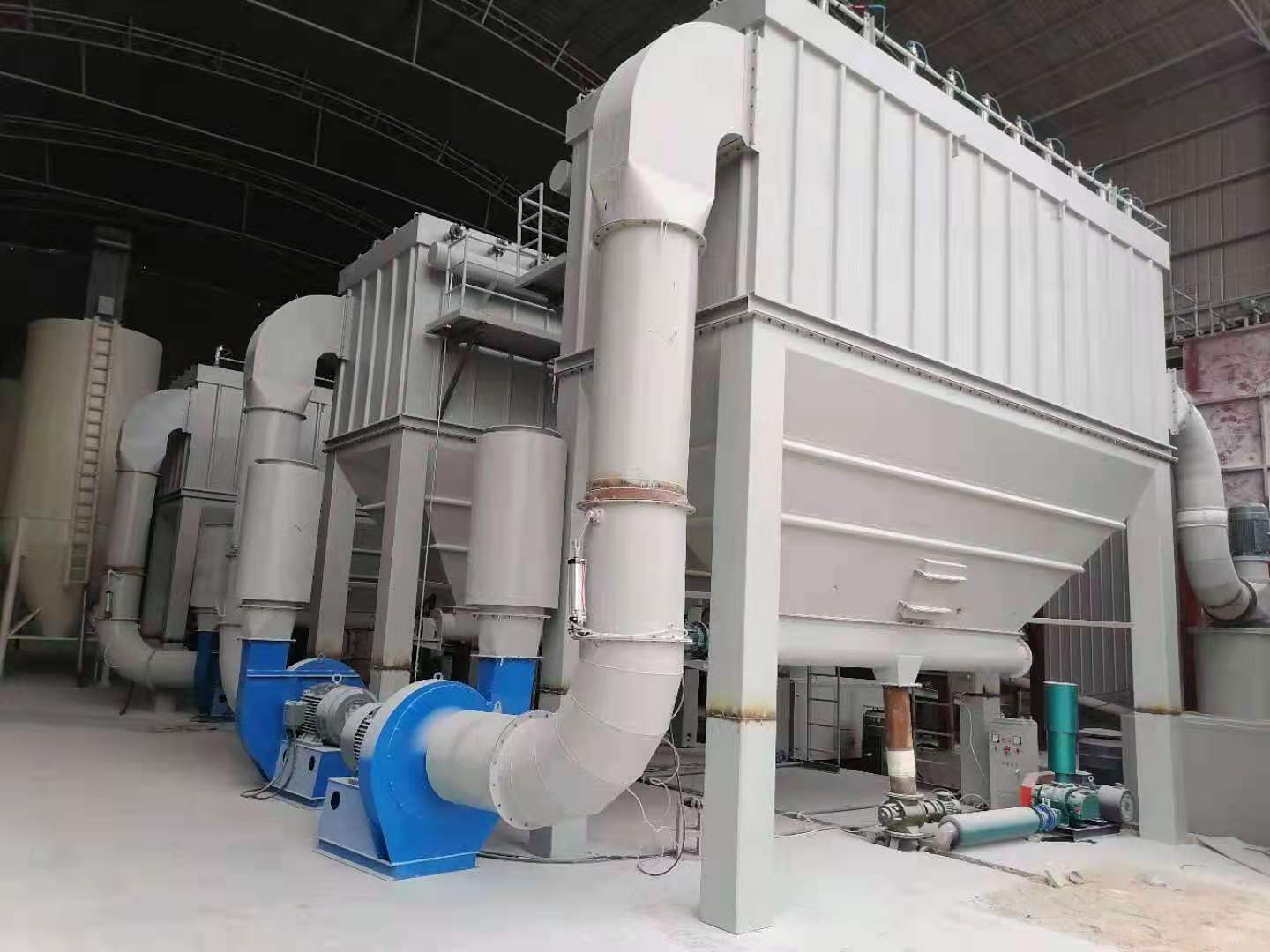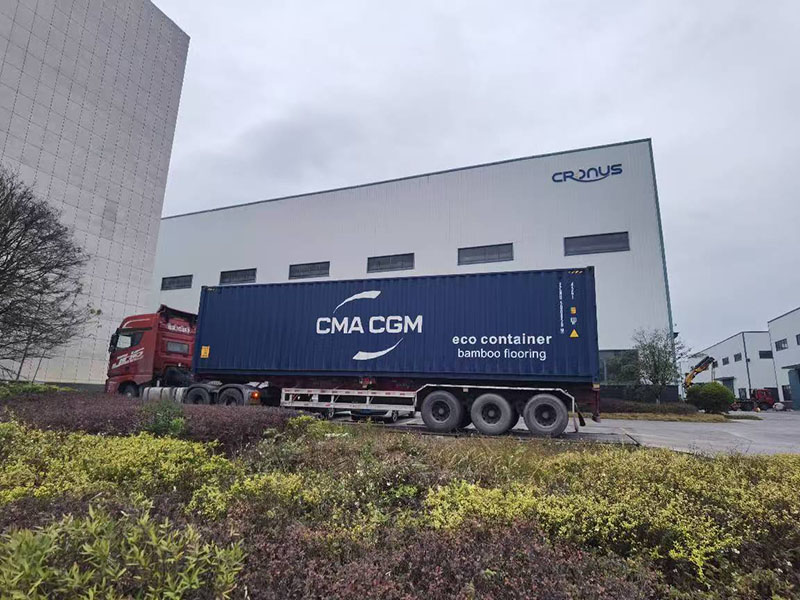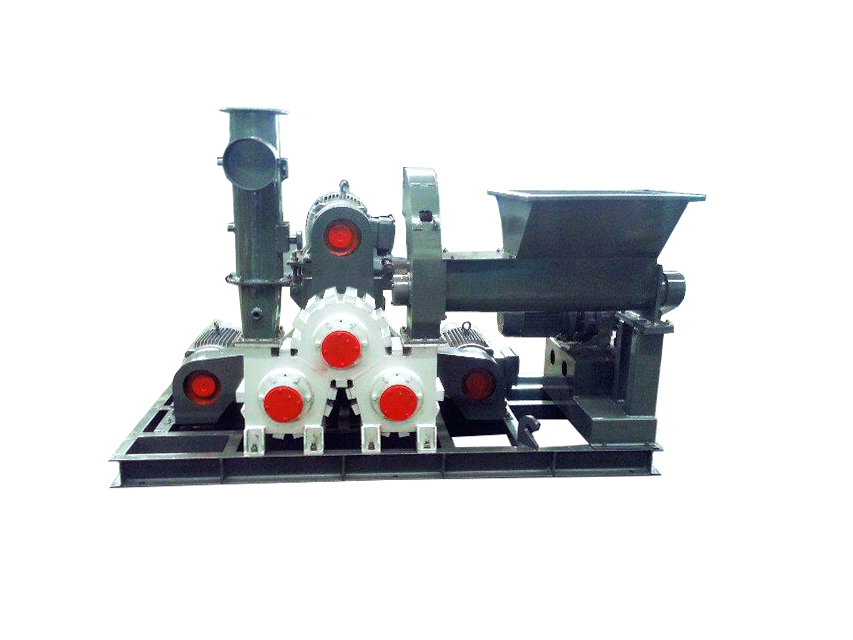The 5R4128 pendulum mill machine is a grinding equipment specially developed by Shanghai Cronus Machinery Company for grinding hard materials. This equipment upgrades the materials of the grinding rollers and grinding rings, making it more durable and having a longer service life.
Today, workers in the Cronus factory are busy at work. They are preparing for the loading operation of a pendulum mill. It is expected that 3 flatbed trucks will be loaded today, and these vehicles will head to Suqian, Jiangsu Province.
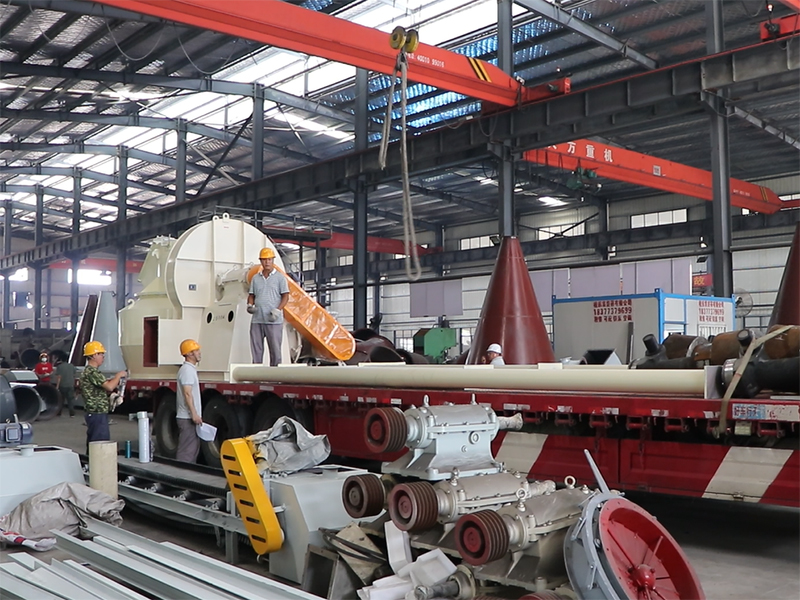
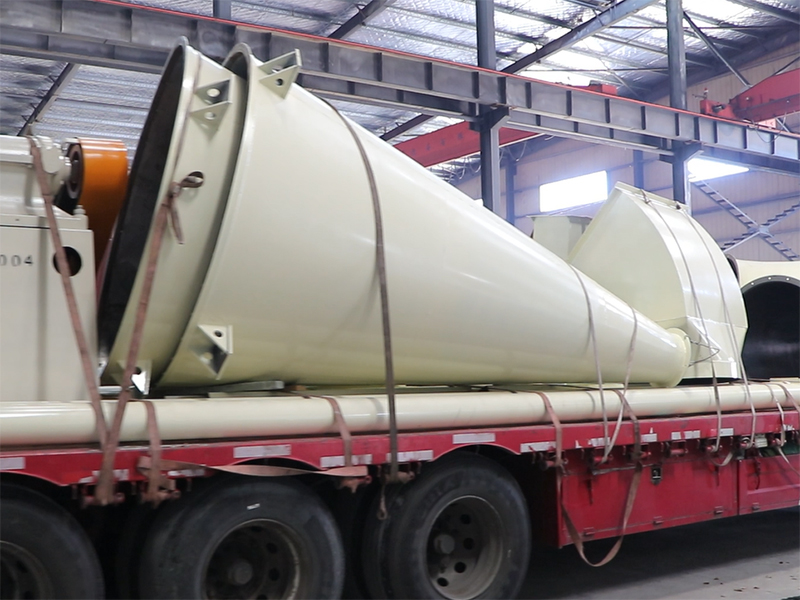
Project Overview
processing materails: limestone
finished fineness: 325 mesh
capacity:8TPH
pendulum mill model: 5R4128
Why choose 5R4128 pendulum mill?
The 5R4128 pendulum mill is specially designed for limestone ore. It is used to process limestone powder and has a higher processing efficiency. At the same time, it adopts wear-resistant grinding rollers and grinding rings, which leads to a longer service life of the equipment. The powder output rate of limestone is also higher.
The design of the double vortex dust collector makes it easier to collect dust. By using the dust collector, the pressure on the dust remover is significantly reduced, thereby increasing the working efficiency of the dust remover and extending its service life. Our company is equipped with a pulse dust remover. Compared to the traditional bag-type dust remover, the pulse dust remover has better dust removal effect and is more convenient to operate. It reduces human intervention and improves work efficiency.
What are the applications of the limestone powder produced by the 5R4128 pendulum mill?
5R4128 Pendulum mill is a commonly used grinding equipment. The limestone powder processed by it (with a particle size usually ranging from 80 to 325 mesh, which can be adjusted according to needs) has the characteristics of good chemical stability, low cost, and easy processing, so it is widely used in many industries. The following are its main application fields:
1. Construction and Building Materials Industry
- Cement production: As a cement admixture, limestone powder can replace part of the clinker (usually with an admixture amount of 5%-30%), reducing production costs. At the same time, it improves the fluidity and hydration performance of cement, and is suitable for the production of ordinary Portland cement, composite Portland cement, etc.
- Concrete admixture: Adding an appropriate amount of limestone powder (usually 10%-30%) to commercial concrete can optimize the workability of concrete (such as improving fluidity and reducing bleeding), reduce hydration heat, and does not affect its strength and durability. It is especially suitable for mass concrete projects.
- Wall materials: Mixed with gypsum, fly ash, etc., it can be made into lightweight partition boards, aerated concrete blocks, etc., reducing the material density and improving the thermal insulation performance.
- Mortar additive: Used in masonry mortar and plastering mortar, it can improve the water retention and workability of mortar, reduce cracking, and lower material costs.
2. Metallurgical and Chemical Industry
- Metallurgical flux: In iron and steel smelting, limestone powder can be used as a flux. It reacts with gangue (such as silica) in iron ore to form slag with low melting point, separates molten iron, and reduces smelting energy consumption.
- Chemical raw materials:
- Used in the production of calcium carbonate (light calcium carbonate, heavy calcium carbonate), which is widely used as a filler in plastics, rubber, coatings, etc.
- As a desulfurizer, in the flue gas desulfurization process of power plants and iron and steel plants, it reacts with sulfur dioxide to generate calcium sulfite, reducing pollutant emissions.
- Used in the preparation of chemical products such as calcium chloride and calcium nitrate, which are applied in antifreeze, desiccant and other fields.
3. Agricultural and Environmental Protection Fields
- Agricultural applications:
- Regulating soil pH: Applying limestone powder to acidic soil can neutralize acidity, improve soil structure, and increase crop yields (especially suitable for crops such as rice and wheat).
- Feed additive: As a calcium source supplement, it is added to livestock and poultry feed to promote bone development and prevent calcium deficiency diseases.
- Environmental governance:
- Wastewater treatment: Used to neutralize the acidity of industrial wastewater, and at the same time adsorb heavy metal ions (such as lead, cadmium) and organic matter in water, reducing the pollution of sewage.
- Landfills: When mixed into the cover soil of landfills, it can inhibit the acidity of landfill leachate and reduce the release of harmful gases (such as hydrogen sulfide).
4. Other Fields
- Coatings and pigments: As an extender pigment, it is added to coatings to improve the hiding power and durability of coatings, reduce costs, and is suitable for architectural coatings, industrial coatings, etc.
- Paper industry: Used for filling and coating paper, improving the whiteness, smoothness and printing performance of paper, and reducing the amount of wood pulp.
- Glass manufacturing: As one of the raw materials in glass production, it participates in the melting reaction of glass and adjusts the chemical composition and performance of glass.



